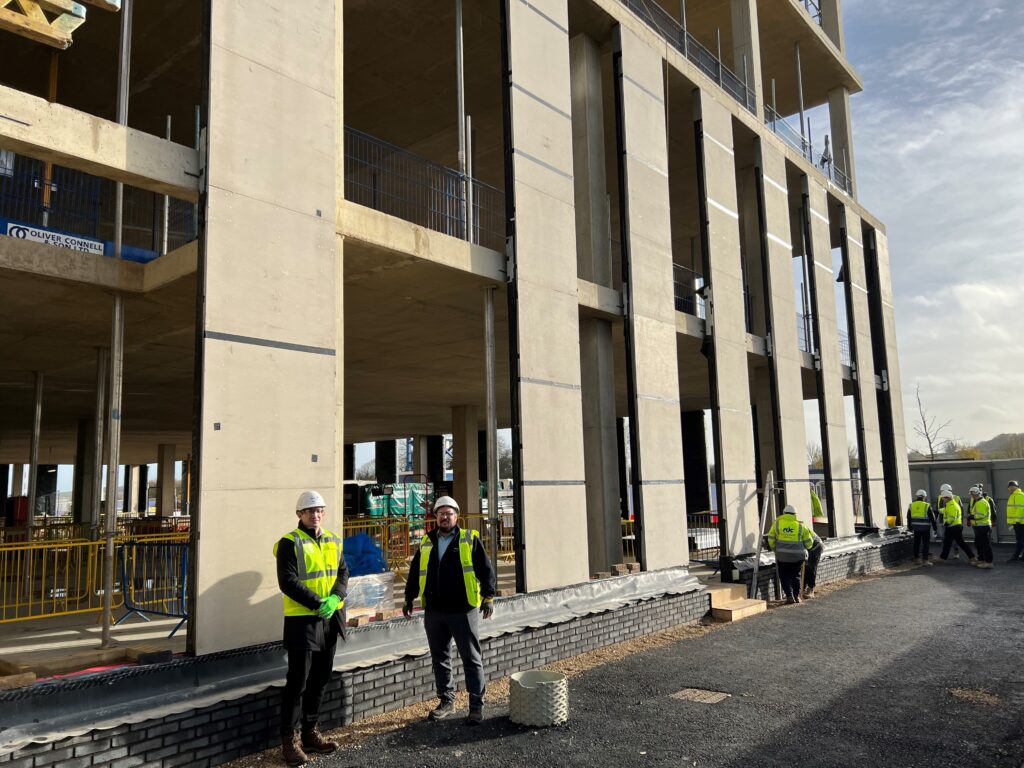Kier’s Win on the £10bn Offsite Construction Solutions Framework
Introduction
Kier’s appointment to all six lots of the Crown Commercial Service’s (CCS) £10bn Offsite Construction Solutions (OCS) framework marks a significant milestone for the company and the wider construction industry. By forming joint ventures (JVs) with McAvoy and Metek, Kier has positioned itself as a leading provider of offsite construction solutions to the public sector. This article will delve deeper into the implications of this win, the specific capabilities of the JVs, the potential impact on the construction industry, and the broader context of offsite construction in the UK.
Understanding the OCS Framework
The OCS framework represents a substantial commitment from the UK government to accelerate the adoption of offsite construction methods. By consolidating procurement through a single framework, CCS aims to drive innovation, reduce costs, and improve the efficiency of public sector construction projects. The framework covers a wide range of building types, including education, healthcare, residential, justice, defense, and thermal efficiency upgrades.
Kier’s successful bid to all six lots demonstrates its comprehensive capabilities in the offsite construction sector. This broad coverage allows the company to offer a complete range of solutions to public sector clients, regardless of the project type or complexity.
The Role of Kier McAvoy and Kier Metek
The formation of Kier McAvoy and Kier Metek is a strategic move that leverages the strengths of both Kier and its manufacturing partners.
- Kier McAvoy: Specializing in pre-manufactured 3D primary structural systems, this JV combines Kier’s construction expertise with McAvoy’s manufacturing capabilities. 3D modular construction offers several advantages, including speed of construction, improved quality control, and reduced waste. By focusing on this technology, Kier McAvoy can deliver highly efficient and sustainable buildings for public sector clients.
- Kier Metek: With a focus on pre-manufactured 2D primary structural systems, Kier Metek provides a complementary offering to Kier McAvoy. 2D modular construction is often used for large-scale, repetitive projects, such as student accommodation or healthcare facilities. By partnering with Metek, Kier can offer clients a wider range of offsite construction options.
The Impact on the Construction Industry
Kier’s win on the OCS framework has several potential implications for the construction industry:
- Accelerated adoption of offsite construction: By securing a significant portion of the public sector market, Kier will contribute to the increased use of offsite construction methods. This could lead to a ripple effect across the industry, as more contractors and suppliers adopt similar approaches.
- Supply chain development: The growth of offsite construction requires a robust supply chain. Kier’s JVs will need to establish strong partnerships with suppliers of components, materials, and services. This could lead to the development of new businesses and job creation in the manufacturing sector.
- Skills development: The successful implementation of offsite construction projects requires a skilled workforce. Kier and its partners will need to invest in training and development to ensure they have the necessary expertise. This could lead to the creation of new training programs and apprenticeships.
- Innovation: The OCS framework encourages innovation in offsite construction. Kier’s involvement in the framework is likely to drive research and development into new materials, technologies, and construction methods. This could lead to the development of more sustainable and efficient building solutions.
Offsite Construction: A Broader Perspective
Kier’s success in the OCS framework is part of a wider trend towards the adoption of offsite construction in the UK. Several factors are driving this trend, including:
- Government support: The UK government has identified offsite construction as a key component of its industrial strategy. Policies such as the Construction Industry Strategy and the Modern Methods of Construction (MMC) Taskforce are aimed at accelerating the adoption of offsite methods.
- Economic benefits: Offsite construction offers several economic benefits, including increased productivity, reduced labor costs, and shorter construction times. These factors are particularly attractive to public sector clients facing budget constraints and increasing demand for new buildings.
- Sustainability: Offsite construction can contribute to more sustainable buildings through reduced waste, improved energy efficiency, and the use of recycled materials. This aligns with the UK’s commitment to achieving net zero carbon emissions by 2050.
- Improved quality: Offsite construction can lead to higher quality buildings through better control of the manufacturing process and reduced reliance on site-based labor. This can result in fewer defects and improved building performance.
Conclusion
Kier’s appointment to the OCS framework is a significant achievement that positions the company as a leader in the offsite construction sector. By combining its expertise with the manufacturing capabilities of McAvoy and Metek, Kier is well-placed to deliver innovative and sustainable solutions for public sector clients. The success of this venture will have a positive impact on the wider construction industry, driving innovation, job creation, and the adoption of more sustainable building practices.





